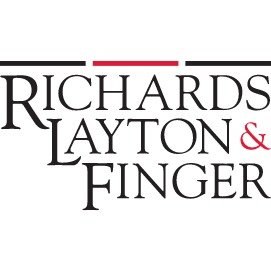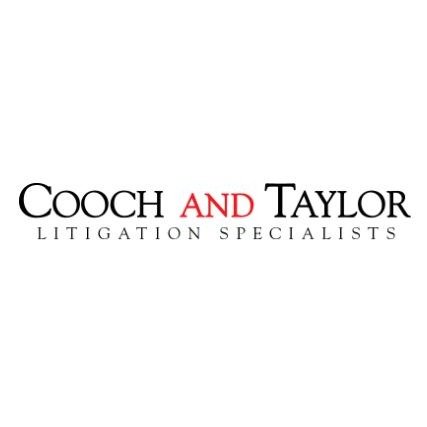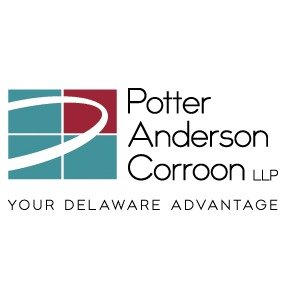Best Antitrust Litigation Lawyers in Wilmington
Share your needs with us, get contacted by law firms.
Free. Takes 2 min.
List of the best lawyers in Wilmington, United States
About Antitrust Litigation Law in Wilmington, United States
Antitrust litigation in Wilmington, United States, involves legal disputes centered around violations of state and federal laws that promote fair competition and prohibit unfair business practices. These laws are intended to prevent activities such as price fixing, monopolization, bid rigging, and restraint of trade. Wilmington, located in the state of Delaware, is a significant center for corporate law due to its business-friendly legal environment and is home to numerous corporations. As a result, antitrust litigation here often involves complex business disputes with broad economic impacts.
Why You May Need a Lawyer
Individuals or businesses may need a lawyer experienced in antitrust litigation for a variety of reasons. Common situations include:
- Challenging unfair competitive practices such as price fixing or monopolistic behavior by competitors.
- Defending against allegations of antitrust violations filed by other companies or government agencies.
- Responding to or initiating investigations by the Department of Justice (DOJ) or the Federal Trade Commission (FTC).
- Navigating merger and acquisition reviews to ensure compliance with antitrust regulations.
- Pursuing claims related to exclusive dealing, group boycotts, or tying arrangements.
- Advising on business practices to prevent unintentional antitrust violations.
- Seeking damages for losses resulting from anticompetitive conduct by others.
Local Laws Overview
Wilmington falls within Delaware, which has its own set of antitrust statutes that work alongside federal laws such as the Sherman Act, Clayton Act, and Federal Trade Commission Act. Key aspects relevant to antitrust litigation in Wilmington include:
- Delaware’s Antitrust Act aligns with federal law and deals with contracts, combinations, and conspiracies that restrain trade and commerce within the state.
- Federal courts in Delaware are prominent venues for antitrust cases due to the concentration of incorporated businesses.
- Businesses operating in Wilmington may be subject to both state and federal scrutiny depending on the scope and impact of their activities.
- If state and federal laws differ, the law that is more restrictive of anticompetitive conduct typically prevails.
- Enforcement is carried out by both federal agencies (DOJ and FTC) and Delaware’s Attorney General.
Frequently Asked Questions
What is antitrust litigation?
Antitrust litigation is the legal process of resolving disputes related to unfair trade practices, such as price fixing, monopolization, or other actions that restrict free competition in the marketplace.
Who can file an antitrust lawsuit in Wilmington?
Both companies and individuals who are harmed by anticompetitive practices can file an antitrust lawsuit. In some cases, government agencies initiate action on behalf of the public interest.
What are some examples of antitrust violations?
Common examples include price fixing between competitors, exclusive agreements that block market entry, abuse of monopoly power, market divisions, and bid rigging.
How do federal and Delaware antitrust laws interact in Wilmington?
Both sets of laws apply. If a practice violates federal and state law, both can be enforced concurrently. Local courts often hear cases that involve both types of law.
What penalties can result from antitrust violations?
Penalties can include civil damages, injunctions to stop unlawful practices, and criminal fines or imprisonment for severe infractions.
How long do antitrust cases typically take to resolve?
Antitrust litigation is often complex and may take several months to several years, depending on the facts and scope of the case.
What should I do if I am under investigation for an antitrust violation?
You should consult with an attorney skilled in antitrust law immediately to understand your rights, obligations, and the possible defenses available.
Can I recover damages if I am harmed by anticompetitive conduct?
Yes, victims of anticompetitive conduct may be entitled to compensatory damages and, in some cases, treble damages, which means three times the amount of actual harm suffered.
What is the role of the Delaware Attorney General in antitrust matters?
The Delaware Attorney General can initiate investigations and lawsuits to stop unlawful business practices and seek remedies on behalf of consumers and businesses in the state.
Do I need a lawyer with specific antitrust experience?
Yes, because antitrust law is highly specialized, working with a lawyer who has direct experience in the field is critical for success in these cases.
Additional Resources
For those seeking guidance or information related to antitrust litigation in Wilmington, these resources may be helpful:
- Delaware Department of Justice - Antitrust Division
- United States Department of Justice, Antitrust Division
- Federal Trade Commission (FTC)
- Delaware Bar Association
- Legal Aid organizations that assist with business law matters
- Local law libraries at Wilmington universities or courts
Next Steps
If you believe you are involved in, or potentially affected by, an antitrust issue in Wilmington, consider the following next steps:
- Collect all documents and communications related to the matter, including contracts, emails, and records of business interactions.
- Avoid discussing specifics of the case with others until you have consulted an attorney.
- Contact a qualified antitrust litigation lawyer who is licensed in Delaware and has experience with both state and federal law.
- Prepare a timeline and list of events to help your attorney understand the situation quickly.
- If you are approached by investigators or receive legal notices, consult with your attorney before responding.
Promptly seeking legal advice will help protect your rights and ensure that you navigate the complexities of antitrust litigation successfully in Wilmington.
Lawzana helps you find the best lawyers and law firms in Wilmington through a curated and pre-screened list of qualified legal professionals. Our platform offers rankings and detailed profiles of attorneys and law firms, allowing you to compare based on practice areas, including Antitrust Litigation, experience, and client feedback.
Each profile includes a description of the firm's areas of practice, client reviews, team members and partners, year of establishment, spoken languages, office locations, contact information, social media presence, and any published articles or resources. Most firms on our platform speak English and are experienced in both local and international legal matters.
Get a quote from top-rated law firms in Wilmington, United States — quickly, securely, and without unnecessary hassle.
Disclaimer:
The information provided on this page is for general informational purposes only and does not constitute legal advice. While we strive to ensure the accuracy and relevance of the content, legal information may change over time, and interpretations of the law can vary. You should always consult with a qualified legal professional for advice specific to your situation.
We disclaim all liability for actions taken or not taken based on the content of this page. If you believe any information is incorrect or outdated, please contact us, and we will review and update it where appropriate.

















